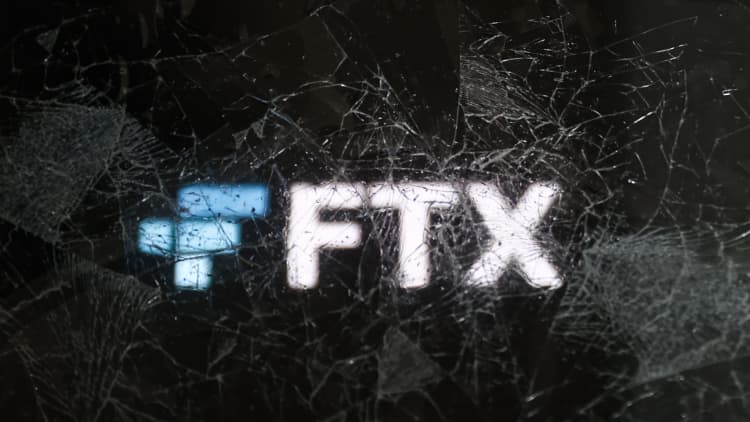The Huobi crypto exchange logo displayed on a smartphone.
Nikolas Kokovlis | Nurphoto via Getty Images
Digital currency exchange Huobi on Friday reportedly said it plans to reduce its global headcount by about 20%, in the latest round of layoffs to hit the beleaguered cryptocurrency industry.
The Seychelles-based company is one of the largest crypto exchanges globally, handling about $370 million of trading volumes on a single day, according to data from CoinGecko.
A company spokesperson told news agency Reuters that Huobi had a “planned layoff ratio” of about 20%. Bloomberg and the Financial Times also reported on the layoff plans Friday.
“With the current state of the bear market, a very lean team will be maintained going forward,” the Huobi spokesperson told Reuters.
Justin Sun, who sits on the company’s advisory board as a member, described the move to Reuters as a “structural adjustment” that had not yet started and was expected to be completed by the first quarter.
Huobi was not immediately available for comment when contacted by CNBC. Sun had not responded to a direct message on Twitter by the time of publication.
Huobi had about 1,600 employees worldwide as of October, according to a Financial Times report.
Huobi’s native HT token at one point sank as low as $4.3355 Friday, down more than 7% from the 24 hours prior, according to CoinMarketCap data.
After the collapse of FTX, crypto traders are scanning for clues as to what will be the next company to fall prey to the downturn in digital assets.

Floods of investors have piled out of centralized exchanges, with nearly 300,000 bitcoins being moved out from Nov. 6 to Dec. 7, according to the most recently available data from CryptoQuant.
Last month, Binance briefly paused withdrawals of the USDC stablecoin, prompting concerns over its own ability to cover client redemptions. It has since resumed USDC withdrawals.
As much as $6 billion in digital tokens were pulled from the exchange between Dec. 12 and Dec. 14.
In a so-called “proof of reserves” statement on Nov. 25, the world’s largest crypto exchange revealed it had a reserve ratio of 101%, indicating it had more assets than liabilities.
Doubts have been raised about the effectiveness of proof of reserves reports, which offer only a snapshot of the assets an exchange holds at a single point in time.
Consultancy Mazars, which had compiled a separate proof of reserves report for Binance, stopped producing such documents altogether for crypto firms on Dec. 16, citing “concerns regarding the way these reports are understood by the public.”
Huobi was acquired by About Capital Management, a Hong Kong-based asset management firm, on Oct. 7. Sun, who founded the Tron blockchain project, serves an advisor to Huobi.
Huobi was originally founded in China, but it was driven out of the country after an intense crackdown from Beijing on the crypto industry.
Today, Huobi only does consulting and research out of China, while its trading operations are run outside of mainland China. The company has offices in Hong Kong, South Korea, Japan and the U.S.






